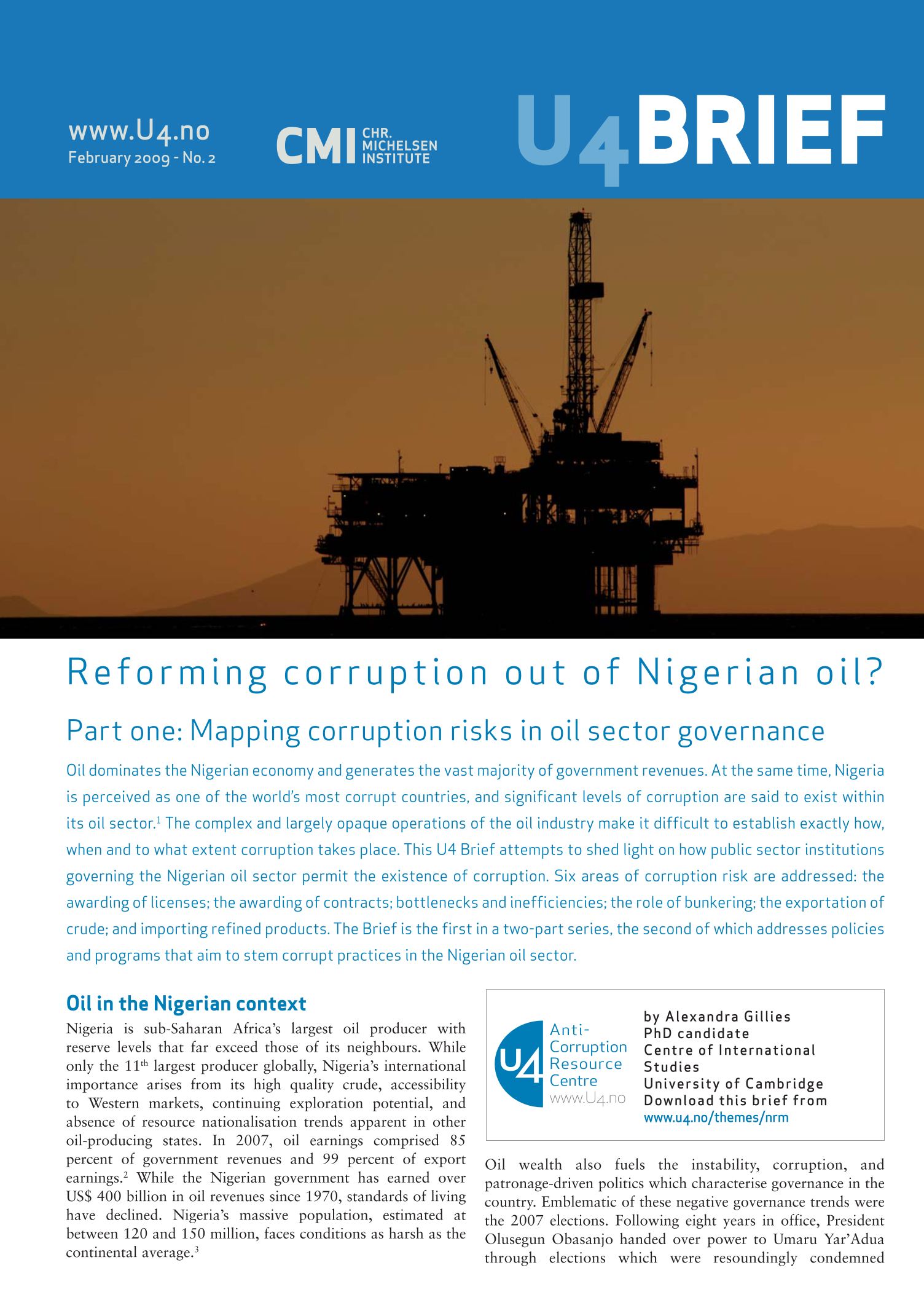U4 Brief
Reforming corruption out of Nigerian oil? Part one: Mapping corruption risks in oil sector governance
Oil dominates the Nigerian economy and generates the vast majority of government revenues. At the same time, Nigeria is perceived as one of the world's most corrupt countries, and significant levels of corruption are said to exist within its oil sector. The complex and largely opaque operations of the oil industry make it difficult to establish exactly how, when and to what extent corruption takes place. This U4 Brief attempts to shed light on how public sector institutions governing the Nigerian oil sector permit the existence of corruption. Six areas of corruption risk are addressed: the awarding of licenses; the awarding of contracts; bottlenecks and inefficiencies; the role of bunkering; the exportation of crude; and importing refined products. The Brief is the first in a two-part series, the second of which addresses policies and programs that aim to stem corrupt practices in the Nigerian oil sector.

Cite this publication
Gillies, A.; (2009) Reforming corruption out of Nigerian oil? Part one: Mapping corruption risks in oil sector governance. Bergen: U4 Anti-Corruption Resource Centre, Chr. Michelsen Institute (U4 Brief 2009:2)
Disclaimer
All views in this text are the author(s)’, and may differ from the U4 partner agencies’ policies.
This work is licenced under a Creative Commons Attribution-NonCommercial-NoDerivatives 4.0 International licence (CC BY-NC-ND 4.0)